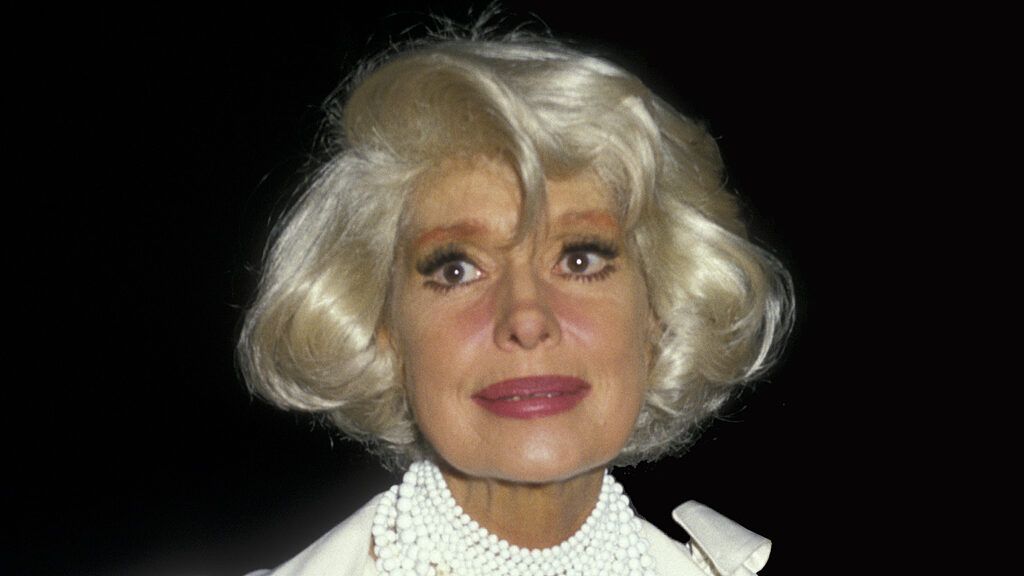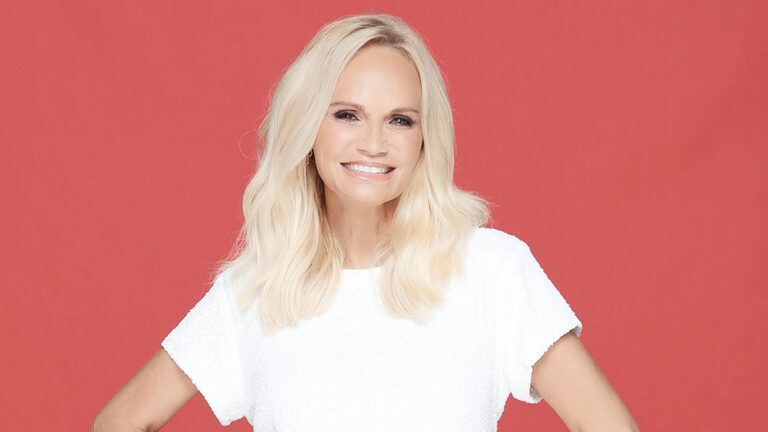It has often struck me that the saddest people in this world are the indifferent ones, those people who do not care. You’ve seen them yourself. They’re not just the drifters; they’re the salesman who is curt, the actress who throws away a performance, the student who turns in a hastily prepared assignment.
Why is it that the salesman doesn’t understand that it is he, not the customer, who loses by a lost sale?
I think that the people who do care are the happy people. Caring—having concern for and deep feelings about—has a way of enlarging your existence. It makes you apply yourself, and the more time you devote to caring about people and principles, the less room there is for gloom.
George Channing, my father, was one of the happy people. He cared on a very big scale indeed. Daddy worked his way through Brown University, graduating summa cum laude.
Eventually he became a newspaper reporter and then an editor, but right in the midst of a successful career (he was managing editor of newspapers in Detroit, then Seattle) Daddy and Mother both made a new commitment.
They joined the Christian Science church, and eventually he became editor-in-chief of all the church publications. He lived a devoted life, doing for others, giving counsel and help, especially to youth, and furthering wherever possible his conviction that love and understanding in the modern world are the same thing.
By word and deed, Daddy showed me that a person who cares, really cares for his God, leads a life loaded with hard work—and with contentment.
Daddy has been gone for ten years now, but recently I was reminded of how this kind of man is never really gone. I was doing a TV show, and a light man, one of those invaluable persons we vain actresses implore to show us—literally—in the best possible light, came up to me.
“I’ve wanted for a long time to meet you, Miss Channing,” he said. “You know, I wouldn’t have this job now if it weren’t for your father. He made it possible for me to get my education.” Then, in a quick back-to-work tone, he said blissfully, “Okay, Miss Channing, how do you want your lights?”
Yes, Daddy’s caring went on.
I used to know another caring man. His name was Brohr Dahlberg, and he was the president of the Celotex Corporation. Do you know what he cared about? Celotex. To him the whole world was made of Celotex.
It’s possible that some people thought of Brohr as too much of a Johnny-one-note, but I loved and admired him for the passion he had for that product of his, because when you have passion, even for Celotex, you can’t help but be thrilled to be alive.
The Celotex of my life is acting. It has always been acting. It always will be. It’s been that way ever since grade school when I was elected class secretary.
Of course, meeting notes are deadly. Nobody ever really wants to hear them. Yet, every Friday morning I used to stand up with notes in hand and give the class one of my “characterizations,” a respectful imitation of a teacher or pupil or someone we all knew.
As soon as the students recognized the latest impersonation, they’d whoop with laughter, and their applause would send me soaring into a kind of vaudeville heaven of my own.
It was theater and theater only that I cared about through all the years of drama and singing lessons—through that demoralizing period when I grew too tall to be lifted in ballet class; through college; through the hard times when few casting directors would hire me or, if I was hired, I was soon fired; through the years of Elks conventions and catch-as-catch-can benefits when people didn’t seem to laugh the way the children had done in the fourth grade.
It’s true, though, if you care enough, as I certainly did, you can endure all kinds of setbacks.
When I left the cast of Hello, Dolly! to make a movie two years ago, I had played Dolly 1,272 times without missing a performance, “What a wonderful record!” some people said. “Where did you get the stamina. The point is, I would have suffered if I had missed even one performance.
I loved Dolly. I had helped create her. She was made up of a lot of things I knew and cared about, and people, too, like the lady I saw while I was shopping one day. I stalked that woman throughout a big department store in order to capture her quick, Irish, Dolly walk.
Still, even caring for Dolly and caring for the audience didn’t mean that I always felt like going on stage. Yet the deep-down caring within me always won out. Once while in Milwaukee I spent the afternoon with Alfred Lunt and Lynn Fontanne, the great acting couple who live near there.
“You fill me with such excitement,” I said to them in one of my outbursts of enthusiasm, “that I’m going down to that theater tonight and give that audience the best performance I ever gave!”
Lynn Fontanne smiled gently. “I’ve always found,” she said to me out of her vast and remarkable experience, “that I always give my best performance when I don’t feel like going on stage, when I have to reach to heaven to get through.”
She was right, absolutely right. It made me think back to my youth when my father once said, “God, give Carol a task too big for her to handle.”
There are nights when you go on stage and yon know the audience is cold, and for a moment you feel the people out there are defying you to entertain them. Saturday nights are generally those “reach to heaven” nights for me, and these are the times I use a little trick.
“I care about your having a good time tonight,” I say to myself as I face the audience. “I know you’re tired from working hard and that you’ve had a big dinner and you’ve paid a high price for your seats.”
As I put myself in their place and feel for them, as individually as possible, the first thing you know, the laughter comes bouncing back and forth from audience to stage like anodes and cathodes, and down over the orchestra pit comes a bridge of love that you could walk over!
Caring is such a simple thing. It works so easily. Why can’t that short-tempered salesman just care enough to put himself in his customer’s shoes for a moment? If you give it a chance, caring can permeate everything you do.
You can always tell a caring person. Julie Andrews is one. It doesn’t surprise me at all that she is Hollywood’s No. 1 box-office star. I’m thinking now of just one thing she did when we were making a movie called Thoroughly Modern Millie.
I had come to Hollywood directly from the stage, which meant that I had to adjust to this medium in which, instead of playing to thousands of people at a distance, I now had to act for a single camera lens close at hand.
One day the picture’s shooting schedule concentrated on me alone. The movies have this terrible thing called a close-up, and that day the close-up was to be of my face talking to a curl on the back of Julie Andrews’ head.
“Come on, Carol,” the director says as he moves in on your nose. “Don’t move! Don’t jiggle! Now give us more energy, Carol. Performance pitch, Carol!”
You sit there in the dreadful heat of the lights with the crew hovering over you, and suddenly they are demanding an Academy Award performance from your nostrils. It is not easy.
But it was made easier for me by Julie Andrews. A stand-in was on the set to supply the curl I was to talk to while Julie had the day off—one of the few days off she has had since making Mary Poppins. To everybody’s surprise that morning, in walked Julie.
She came in and sat down beside me and held my hand during those close-ups. She gave me her know-how. She understood that I could relate my character of Muzzle better if I were playing to her Millie rather than to a stand-in’s
“You understand Muzzle better than anyone,” she’d say softly as the camera closed in. And as she talked to me, filling me with confidence, I relaxed.
“I just can’t believe it,” I said to Julie, trying to express my gratitude when we were finished. “I’ve never had anybody do that kind of thing for me before. People have given me orange juice and money and time, but never this sort of ‘inside’ help…”
“Haven’t they really?” she said to me in that crisp British way of hers. And when she walked away, I had a lovely feeling that here was a new and wonderful friend.
Julie cared about me, yes, and I think she cared that much about the success of her picture. She wanted to make it as good as possible in every respect.
Some people say that the ability to care, to feel for, to be concerned with, is a gift. It’s something you’re born with, they say, like a sense of humor—you either have it or you don’t.
I don’t believe that. I believe we are born loving and charitable creatures, but that along the way we learn to be lazy and to be afraid, and yes, even hate, and somehow our true feelings become submerged. I believe that people simply lose contact with the God Who created them.
That contact can be reestablished. We can reach out to God directly, of course, as my father did, devoting his life fully and unabashedly to his religion. Or we can make contact indirectly, reaching Him through others, by consciously doing for others.
It’s when we take the plunge we’ve been too afraid to take, deliberately putting ourselves in other people’s shoes, involving ourselves in their struggles, that indifference falls away and an exciting feeling of concern takes over. That’s caring.
Did you enjoy this story? Subscribe to Guideposts magazine.





